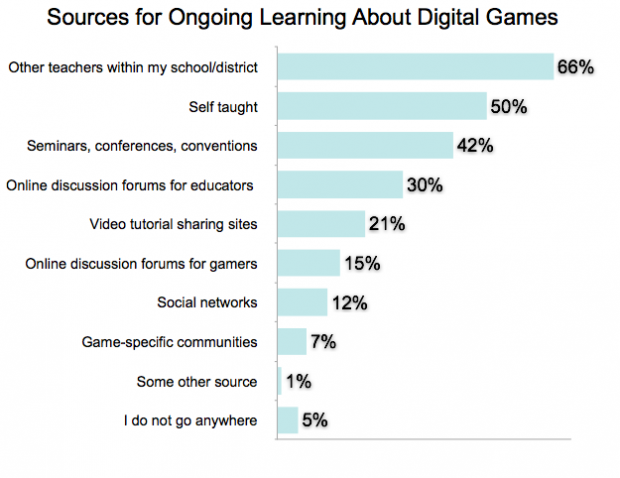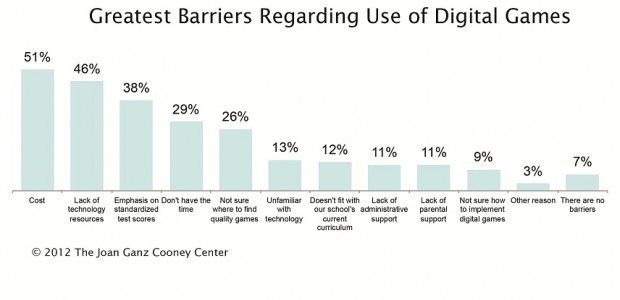
No longer relegated to experimental programs, digital games are becoming much more commonly used in classrooms across the country, according to a survey by the Joan Ganz Cooney Center released today.
Half of the 505 K-8 teachers surveyed said they use digital games with their students two or more days a week, and 18 percent use them daily.
There will be further, more in-depth coverage of this report in the coming weeks, but in the meantime, some more statistics from the study:
- Nearly 70 percent said that "lower-performing students engage more with subject content with use of digital games."
- Three-fifths reported "increased attention to specific tasks and improved collaborations among all students."
- Sixty percent said using digital games "helps personalize instruction and better assess student knowledge and learning."
- Though most use Apple or PC computers, 25 percent said their students use iPads or tablet computers, and less than 10 percent use other mobile devices or video game consoles.
- 62% said games make it easier to level lessons and effectively teach the range of learners in their class.
Teachers mostly used literacy (50 percent) and math (35 percent) games in class, and said the games' alignment with Common Core State Standards was the most valuable quality, the study showed.



